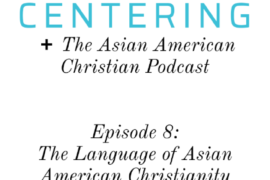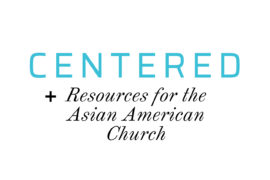
[Bill Watanabe is a legend in the Los Angeles Japanese American community. Born in the Manzanar concentration camp during World War II, he founded the Little Tokyo Service Center in 1980. He is a Christian and a founding member of Asian-American and Pacific Islander Christians for Social Justice.
With Bill’s permission, we are reprinting several of his pieces originally published in the Rafu Shimpo. We believe that his experience and wisdom is invaluable for our contemporary Asian American Christian community. – Editor]
Time Magazine recently ran some stories about acts of kindness, and whether kindness is increasing or decreasing in these tumultuous days. This made me think about an incident involving my own family many years ago.
My father left Fukushima Japan at age 16 and came to America in 1920.He became a flower grower and in 1932 he married my mother, an 18-year old picture bride, and by 1938 they had three sons in quick succession.
Sometime around 1937, my father leased some land (perhaps about ten acres) from a Jewish man named Mr. Meichtry, at the corner of Laurel Canyon and Montague Streets in the San Fernando Valley.
The property was not good for farming, however, because it was imbedded throughout with rocks and boulders making it impossible to plow and cultivate for planting. Undaunted and with typical Issei spirit and pluck, my father and my uncles decided they could make the land productive by removing all the rocks by hand! They purchased a large flat-bed trailer specially fitted with huge airplane tires hitched to a tractor and they piled countless hundreds of rocks and boulders and hauled them away. They did this tirelessly for months until the land was finally cleared and could be cultivated for farming. Needless to say, the value of Mr. Meichtry’s land was increased considerably with this effort to clear away the rocks and boulders.
By 1941, the family had done well selling flowers (such as carnations, asters, chrysanthemums, and anemonies) and made enough money to build two simple homes and a packing shed on the property, as well as buying a brand-new truck that could take the flowers to the Japanese flower market near downtown Los Angeles. Life was good for my immigrant parents and their growing family but off in the horizon were brewing storm clouds of impending war.
“off in the horizon were brewing storm clouds of impending war.”
One Sunday while my parents were working in the fields, they were approached by an old friend, a Nisei fertilizer salesman from downtown, and he told them the shocking news that Japan had bombed Pearl Harbor in Hawaii and that Japan and the US were at war! The entire Nikkei community worried and wondered what was going to happen to them and what should they do?
When the orders by the government were given for all Japanese living on the west coast to be forcibly removed due to so-called “military necessity”, my parents were approached by Mr. Meichtry. He told them that he would buy their brand-new homes and packing shed and truck and he will take care of the property until they come back. He assured my parents the war will not last forever, and they can pick up where they left off. He gave my father $5,000 and made a promise he would sell everything back to them for the same price when they returned. My parents had no choice but to trust that Mr. Meichtry would be an honorable man.
“My parents had no choice but to trust that Mr. Meichtry would be an honorable man.”
In March of 1942, the Watanabe family was ordered to report to the bus depot in Burbank to board special buses to be taken away. Mrs. Meichtry loaded her truck with my family and belongings and took everyone to the Burbank bus depot, and as the family boarded the bus, she smiled and waved goodbye.
A few months later, Mr. Meichtry drove to Manzanar (back in 1942, this was a long 8-hour drive over two-lane country highways) in order to visit and see how everyone was doing, and he brought Mrs. Meichtry’s delicious home-made fried chicken dinner. My father told Mr. Meichtry there is a shortage of furniture in the barracks and asked if he could come back with some furniture from the house. This he did a short time later, and brought more home-cooked food for everyone. When you think about it, it took courage for a Jewish man to be doing this. Anyone who found out that he was helping and visiting the jailed Japanese could have labelled him a “Jap-lover” and accused him of being disloyal but this didn’t seem to faze him – perhaps as a Jew he could understand better what it meant to be discriminated against.
“Mr. Meichtry drove to Manzanar… a long 8-hour drive over two-lane country highways”
Sure enough, the war did not last forever, and in early 1946 after the closure of the incarceration centers, my father went to see Mr. Meichtry. Coming upon the property, he could see the houses and packing shed were still standing in good shape but he noticed two white families were living there. My father feared that the promise made before the war would not be kept. My father told Mr. Meichtry he wanted to buy back the structures and truck according to the promise made in 1942 and hoped that Mr. Meichtry would keep his word.
My family was one of the fortunate ones who didn’t lose everything due to unscrupulous opportunists during WW2 but instead benefitted from the kindness of a true friend. Mr. Meichtry kept his promise and after a period of transition, my family was able to move back into their homes and pick up the business where they left off.
These acts of kindness are an example of what makes America Great – may 2019 be a year filled with more kindness for all of us.



9 Comments
Pingback: chill cafe
Pingback: ocean wave sounds
Pingback: peaceful piano music
Pingback: cozy coffee shop
Pingback: Relaxing Jazz
Pingback: beautiful piano
Pingback: relax cafe music
Pingback: SEOAD
Pingback: lost vape